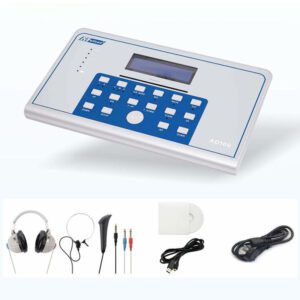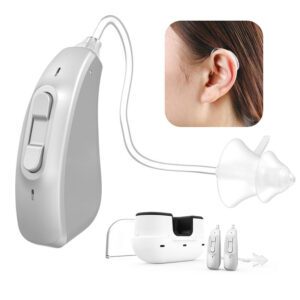Understanding Quick Power Consumption in hearing Aids
Some users report that their hearing aid batteries lasted a week when they were new, but now only last around five days. Why is this happening? Is the hearing aid simply old? In fact, the power consumption of hearing aids is influenced by several factors, and understanding them can help users make better choices to extend battery life.
hearing Loss Severity and Power Usage
The power consumption of hearing aids is closely related to the severity of hearing loss. The greater the hearing loss, the louder the sound needs to be amplified, which naturally requires more power. This is similar to pushing a heavier object — the more effort required, the more energy consumed.
Additionally, if the hearing aid includes multiple functions, such as Bluetooth, noise suppression, or automatic settings, these features demand a higher current to operate, causing the battery to drain faster.

Environmental Factors Affecting Battery Life
The environment in which a person uses their hearing aid can significantly affect battery consumption. In quieter spaces, like libraries or homes, where background noise is minimal, the battery tends to last longer as the device works less to filter and amplify sounds.
However, in noisy environments, such as parties or markets, the hearing aid has to amplify sounds more and work harder to filter out noise, consuming more power in the process. Extreme weather conditions, such as high or low temperatures, as well as high humidity or altitude, can also impact battery performance.
Maintenance Issues and Battery Efficiency
If a hearing aid isn’t cleaned or maintained properly, moisture or dust can accumulate inside the device. Over time, this can cause corrosion or blockages in the internal components, which may lead to inefficient battery use. Regular maintenance and proper cleaning are essential for maintaining the hearing aid’s battery life.
Battery Quality and Lifespan
The quality of the battery itself plays a significant role in how long it lasts. If the battery is of low quality or has reached the end of its lifespan, it will discharge much faster. When purchasing hearing aid batteries, it’s important to avoid excessive stockpiling, as batteries degrade over time. It’s best to buy only as many batteries as you expect to use in the near future and replace them before they expire.
Tips for Extending Battery Life
To ensure that your hearing aid batteries last as long as possible, follow these helpful tips:
- Store Batteries Properly: Keep spare batteries in a dry place, away from extreme temperatures, to preserve their effectiveness.
- Proper Battery Handling: Especially in winter, the cold can cause batteries to discharge more slowly. When installing a new battery, allow it to sit for about a minute after removing the protective film. This gives the battery time to fully contact the air and activate before use.
By understanding these key factors and implementing the tips above, you can significantly extend the life of your hearing aid batteries and avoid frequent replacements.



